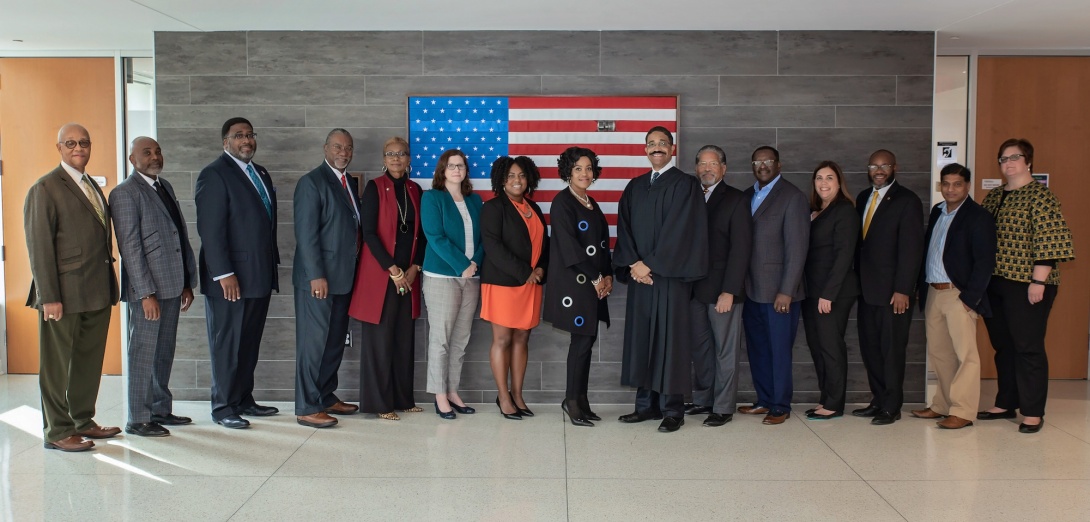INSTITUTE INDEX: Southern states lag in census participation outreach

North Carolina is one of only five Southern states to have established a Complete Count Commission, seen here, to ensure a full and accurate census count in 2020. (Photo from the N.C. Department of Administration website.)
Number of U.S. residents at risk of not being counted in the 2020 census, the nation's first-ever digital count, according to the Urban Institute's estimates: 4,064,600
According to a George Washington University study, amount of federal aid a state could lose over the next decade for each person not counted: $19,500
Total amount California has proposed to invest "toward strategies and activities that will help ensure an accurate and successful" 2020 census count: $154.3 million
Amount Illinois is spending to ensure a complete count next year: $29 million
In comparison, amount Georgia allocated in the 2019-2020 fiscal year budget to the state's Complete Count committee, which aims to increase community outreach to encourage full participation in the 2020 census: $1.5 million
Number of states where Complete Count committees have been created: 27
Of those 27 states, number that are in the South: 5*
Percent of the U.S. black population that lives in Southern states: 58
Number by which black residents of the U.S. are at risk being undercounted in 2020: 1.7 million
Date on which Florida's HB 731 and SB 912, companion bills that would have established a state-level Complete Count committee, died in committee: 5/3/2019
Percent of Florida's population that lives in officially designated hard-to-count neighborhoods: about 15
Date that Louisiana's HB 99 establishing a state-level Complete Count committee died in chamber without debate: 5/2/2018
Percent of Louisiana's current population that lives in hard-to-count neighborhoods: about 35
Under the Urban Institute's medium-risk scenario for an inaccurate census, number of Louisiana residents who could go uncounted in 2020: 49,400
Amount of federal aid that would cost the state over a decade: almost $1 billion
* Alabama, Georgia, Kentucky, North Carolina, and Virginia.
(Click on figure to go to source.)
Tags
Sarah Moore
Sarah Moore is an intern with the Institute for Southern Studies. She is pursuing bachelor's degrees in political science and gender and women's history at the University of North Carolina at Chapel Hill.
